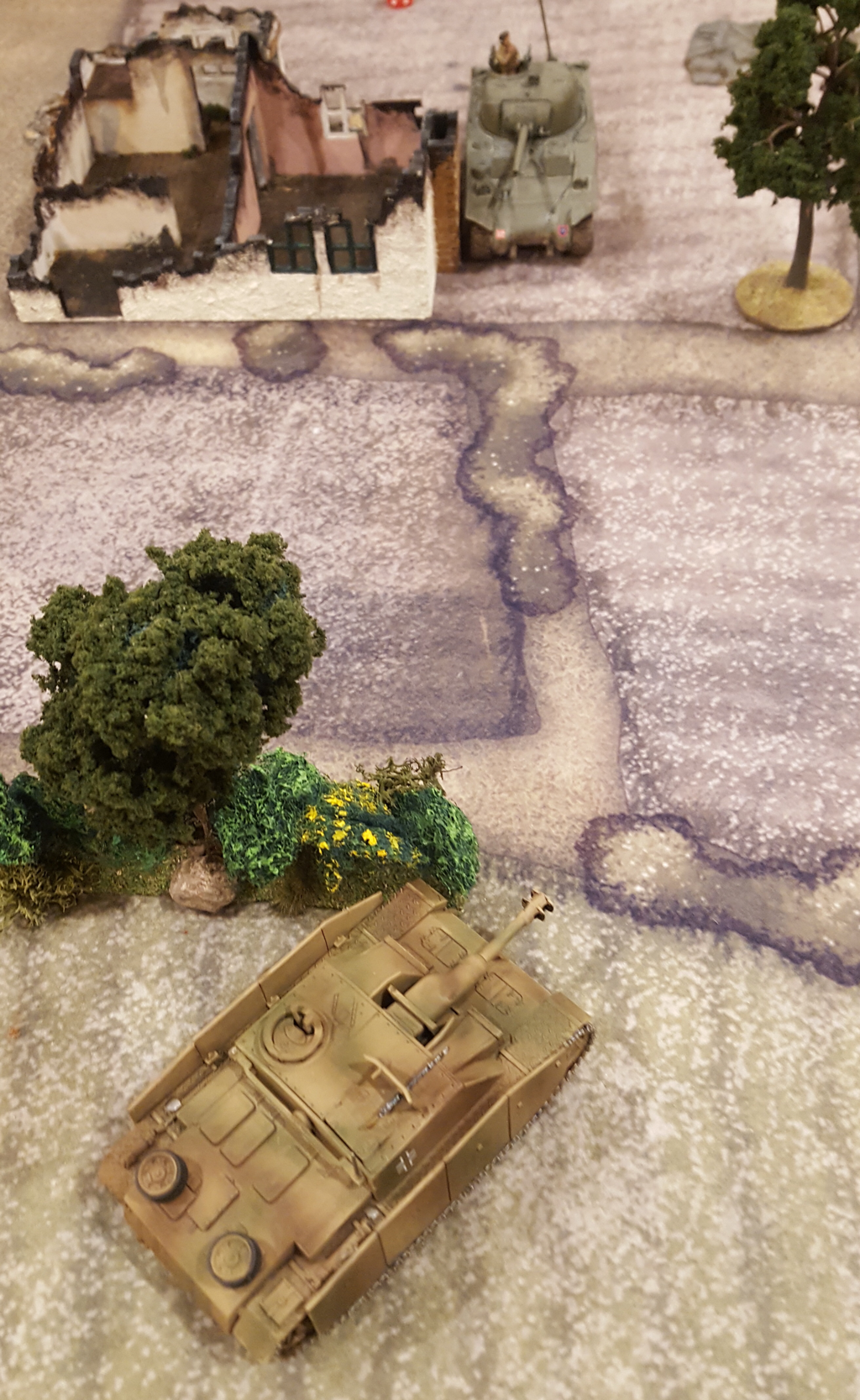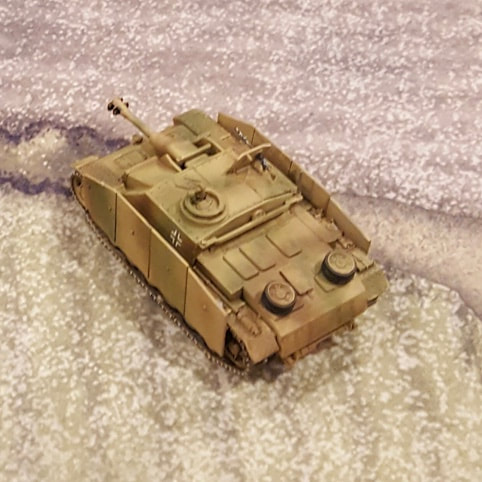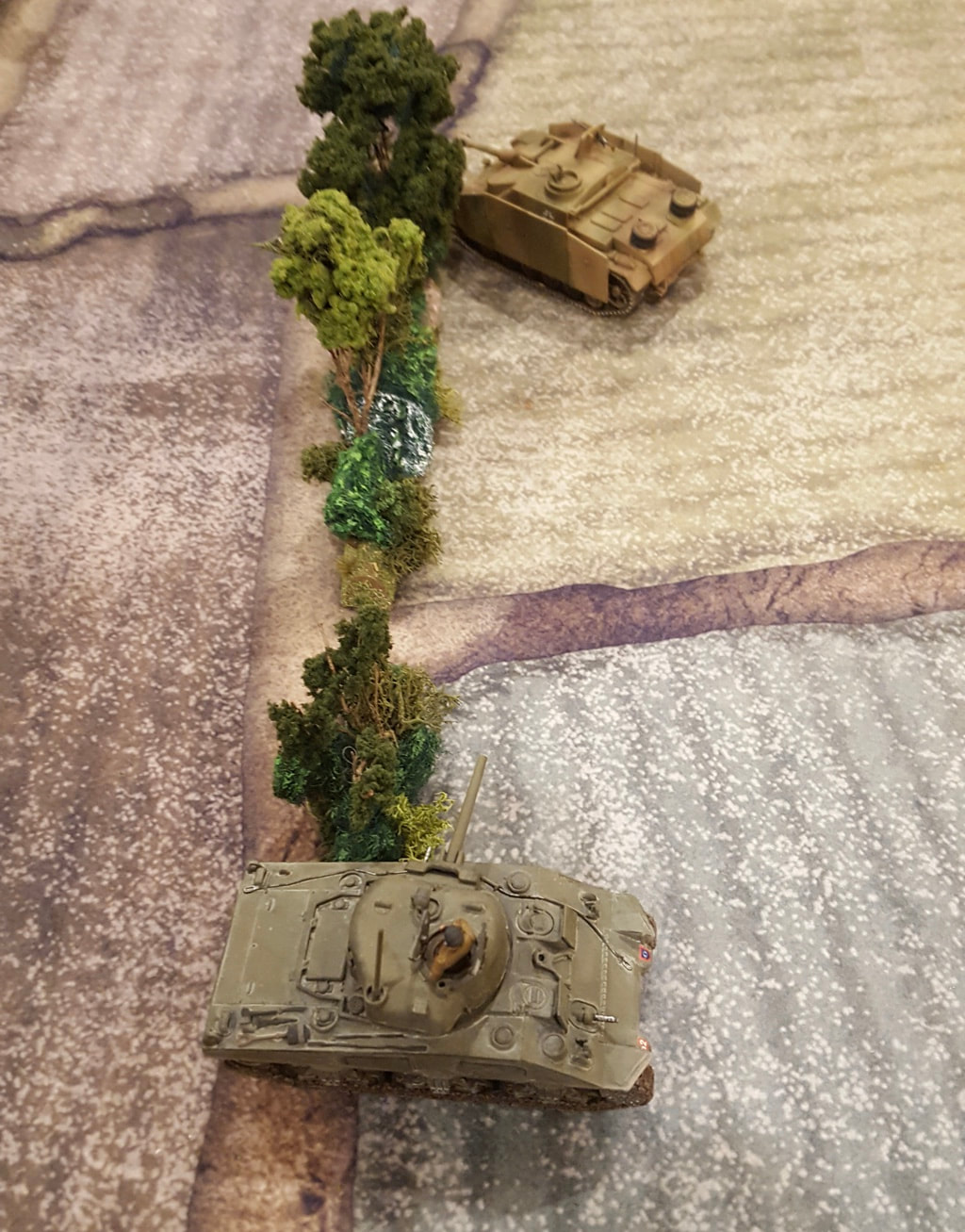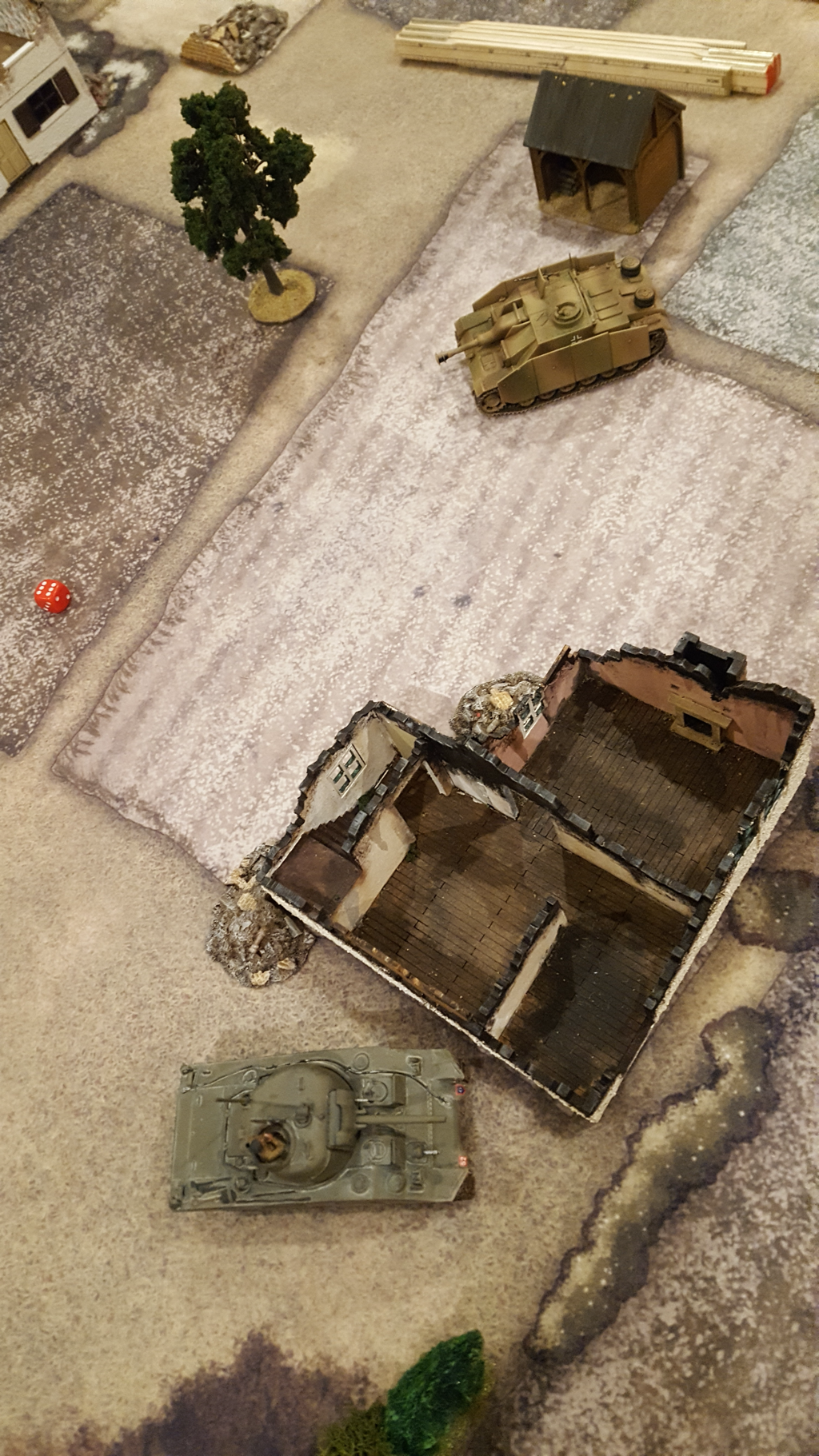|
We managed to get an evening’s wargaming in over the Easter weekend. My son Nick is always happy to learn new systems so we agreed to try What a Tanker by the Too Fat Lardies. I had picked up the rules at Warfare in November along with a couple of MDF dashboards that the Rubicon team were selling. We took a Sherman and a Stug III G and set up a random table in the kitchen. We played three games in all, the first one as a cooperative venture to make sure we understood the rules. As it turned out we got the hang of the mechanics within the first couple of turns. We didn’t miss the absence of a quick reference sheet as this function is mostly fulfilled by the dashboard. Also the rules are nicely intuitive: you just have to remember what actions the dice stand for and any special rules for your AFV. We were very soon focussing on how to play, rather than on what the hell the rules meant. We also really enjoyed ourselves. For those who have yet to play the rules, the core mechanic is the roll of 6 dice for each vehicle at the start of its turn. Each result allows for one action (drive; acquire target; aim; fire; reload; and wild die). The player can play these dice in any order. A tank can lose dice, temporarily or for good, as a result of enemy fire. We found that being restricted by the dice rolls caused some frustration but not so much so as to spoil the enjoyment. In fact it created some exciting moments as a tank found itself unable to exploit a perfect opportunity. And not only do the action dice work well as a mechanic, they are a very effective antidote to the usual wargaming problem of the all-seeing player’s eye in the sky. And even a little reading of tank crew memoirs throws up many examples of the limitations on visibility and awareness for a crew shut up inside an AFV. Our games involved a lot of cat and mouse creeping around the field, each trying to get a shot in while taking maximum advantage of cover. We learned quite quickly that a flank or rear hit is far more effective than a hit on frontal armour. We also realised that it isn’t always smart to keep firing: that wild die might be better used to move back into cover at the end of the turn than to stay in the open and fire another round. We also agreed that a straight duel to the death between two tanks can lead to some strange behaviour, as each player hangs on in there for longer and takes more risks than would be sensible in reality. At one point we were following each other around a building, each hoping to land a rear shot. There is little incentive in the basic game to apply the principle of ‘shoot and scoot’! I guess the answer is to have more than two vehicles on the table and/or to create scenarios that encourage ‘historical’ behaviour. We agreed that What a Tanker is an elegant and exciting set of rules. In years gone by I think we would have called it a Beer and Pretzels game. I would mean that as a compliment.
1 Comment
|
Archives
November 2023
Categories
All
|




 RSS Feed
RSS Feed